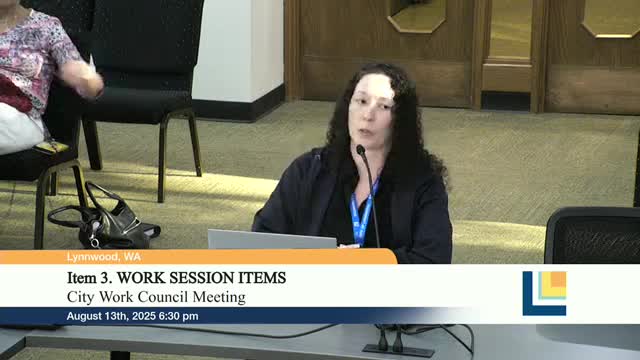Lynnwood Council Discusses Budget Deficit and Long-Term Obligations Amid Uncertain Revenue
August 13, 2025 | Lynnwood, Snohomish County, Washington
Thanks to Scribe from Workplace AI , all articles about Washington are free for you to enjoy throughout 2025!

This article was created by AI using a video recording of the meeting. It summarizes the key points discussed, but for full details and context, please refer to the video of the full meeting. Link to Full Meeting
City officials acknowledged that the current financial situation is more severe than the impacts experienced during the COVID-19 pandemic. The council is currently in negotiations with five labor unions regarding potential staff reductions, a necessary step given the city's fiscal constraints. However, the council emphasized the importance of adhering to collective bargaining agreements during this process.
One of the key topics was the financial implications of the new Justice Center, which has introduced substantial ongoing costs, including a projected $5 million in bond payments starting next year. Council members expressed concerns about the long-term financial obligations associated with the facility, including staffing and operational costs, which could further strain the city’s budget.
Council member Lewweiler raised critical questions about the sustainability of current expenditures, particularly in light of the new obligations created by the Justice Center. He pointed out that while the city has made significant investments in public safety, there is a pressing need to balance these costs with the community's expectations for maintaining parks and road infrastructure.
The council also discussed the importance of conservative revenue forecasting, particularly given the city's reliance on sales tax and development permit revenues, which are highly sensitive to economic fluctuations. This reliance poses a risk, as downturns can lead to rapid declines in revenue, leaving the city with limited time to adjust its budget.
As the council navigates these financial challenges, there is a clear recognition of the need for a more stable funding model that can support essential services without compromising the quality of life for residents. Council member Escamilla suggested exploring alternative budgeting strategies to reduce reliance on volatile revenue sources, indicating a desire for a more resilient financial framework moving forward.
In conclusion, the Lynnwood City Council's discussions reflect a critical juncture for the city as it seeks to address immediate budgetary concerns while planning for long-term financial stability. The council's commitment to transparency and community engagement will be essential as they work to balance fiscal responsibility with the needs and expectations of Lynnwood residents. Future meetings will likely delve deeper into these issues, exploring potential solutions and strategies to ensure the city can meet its obligations without sacrificing essential services.
Converted from Lynnwood - City Council Special Work Session meeting on August 13, 2025
Link to Full Meeting
Comments
View full meeting
This article is based on a recent meeting—watch the full video and explore the complete transcript for deeper insights into the discussion.
View full meeting
